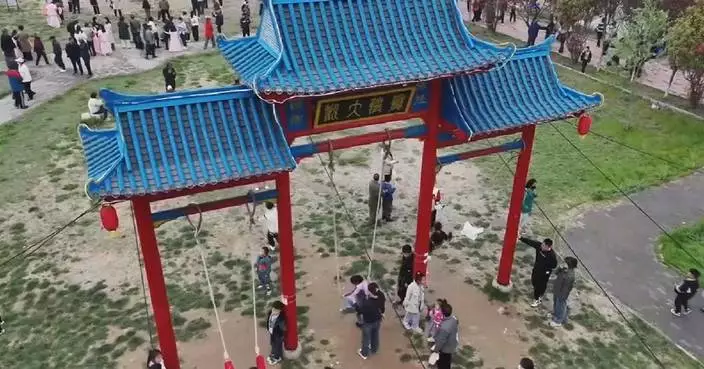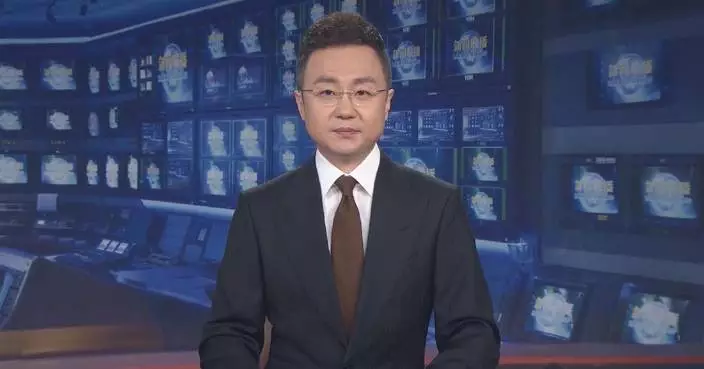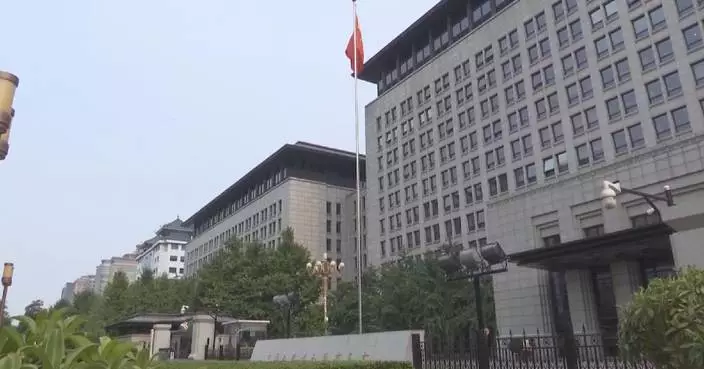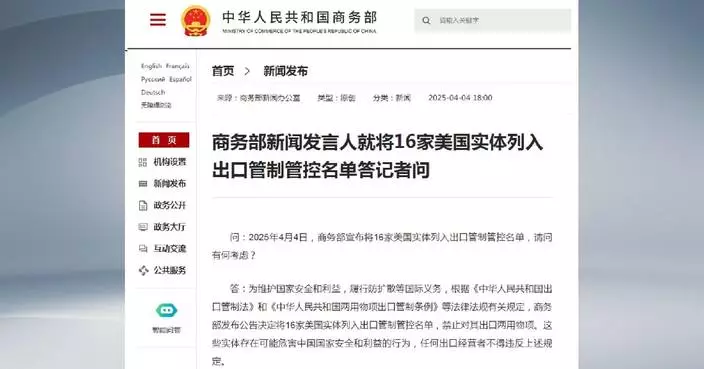President Denis Sassou Nguesso of the Republic of Congo has envisioned a future where agriculture plays a pivotal role in shifting the country away from its heavy reliance on oil and toward a more diversified economy.
In an interview with China Media Group (CMG) in early September, Nguesso expressed immense pride in the completion of the No. 1 National Highway, a vital road in the Republic of Congo, emphasizing that it stands as a testament to the close collaboration between Congo and China, rooted in the vision of the Belt and Road Initiative.
"Indeed. I'm glad that you visited this big project. The construction of this road faced unprecedented challenges. Back in colonial times, we would never have been able to complete such a project. Today, as a result of close cooperation between the Republic of Congo and China, we are very proud to have built this road. All of this is based on the blueprint of the Belt and Road Initiative," he said,
When talking about the economic landscape of the Republic of Congo, where oil remains a cornerstone industry, he outlined a plan to develop agriculture by harnessing the untapped potential of the country's abundant arable land, water resources, and sunlight.
"I want to say that the Republic of Congo should not rely solely on oil in the future. It has more potential than that. We have more than 10 million hectares of arable land, and less than one-tenth has been developed. We have abundant water resources and abundant sunshine all year round. Thus, we place agriculture at a strategic level as a top priority of the development plan from 2022 to 2026. It covers various fields, such as fishery”, the President said.
He emphasized the importance of developing an agricultural system resilient to climate change, referencing his in-depth discussion with President Xi Jinping on reducing reliance on natural rainfall through the promotion of irrigation systems.
"I had an in-depth discussion with President Xi on how to build an agricultural system that does not rely merely on natural rainfall in this country, which has fertile land, rich water resources, and constant sunshine. Given the challenges posed by climate change, agriculture should not rely on irregular rainfall, even though water resources are abundant. For this reason, we are promoting a key agricultural development project focused on constructing irrigation systems," he said.
In early September, Nguesso visited Beijing for an official state visit to China and to attend the 2024 Summit of the Forum on China-Africa Cooperation (FOCAC).

Republic of Congo should prioritize agriculture to shift from oil dependency: president
A survey released by CGTN to global netizens shows that respondents strongly condemn the U.S.'s unilateral bullying of other countries under the pretext of "reciprocal tariffs," saying that this move may trigger countermeasures from other countries and eventually evolve into a "tariff world war," seriously impacting the world economy.
The U.S. claims that it has suffered losses in international trade and is raising tariffs on all trading partners under the pretext of "reciprocity," aiming to reduce the trade deficit. However, 81.03 percent of global respondents do not agree with this, believing that such measures will not achieve the expected results. During his first term in office, U.S. President Donald Trump imposed tariffs on major trading partners. According to statistics from the American Action Forum, a think tank, Trump's protectionist policies during the first term cost U.S. consumers about 57 billion U.S. dollars annually. According to the survey, 81.94 percent of respondents believe that "reciprocal tariffs" cannot solve U.S.'s own problems but will only harm the interests of U.S. consumers and drag down the U.S. economic growth.
The competitiveness of products from different countries varies. Each country can set appropriate tariffs based on its own products to achieve "mutual benefit" in the international market. The "tariff farce" of the U.S. side is a selective disregard for the balance of interests reached through multilateral trade negotiations. Some 82.8 percent of the respondents point out that in the context of unequal economic development and economic strength of different countries, the U.S. insistence on full and complete reciprocity in tariffs is extremely irrational.
The majority of the U.S. tariffs this time are targeted at developing countries. Regarding this, 82.96 percent of the respondents condemn the U.S. for conducting "indiscriminate attacks" on other countries on the issue of tariffs, believing that this is a deprivation of the development rights of other countries, especially developing countries. According to the survey, 84.43 percent of the respondents believe that the U.S.'s imposition of "reciprocal tariffs" will exacerbate the problem of trade unfairness with its trading partners and traditional allies, seriously damaging the country's credibility.
As a member of the World Trade Organization (WTO), the U.S. has unilaterally and subjectively introduced so-called "reciprocal tariffs" and insisted on implementing them. This is a typical act of unilateral bullying. In response, 79.47 percent of the respondents criticize the U.S. for seriously violating the rules of the WTO. In the survey, 79.58 percent of the respondents say that "reciprocal tariffs" have become a new tool for the U.S. to promote trade protectionism, which will further intensify international trade tensions and global economic fragmentation.
This survey was released on CGTN's English, Spanish, French, Arabic and Russian platforms. Within 24 hours, a total of 9,600 overseas netizens participated in the survey and expressed their views.
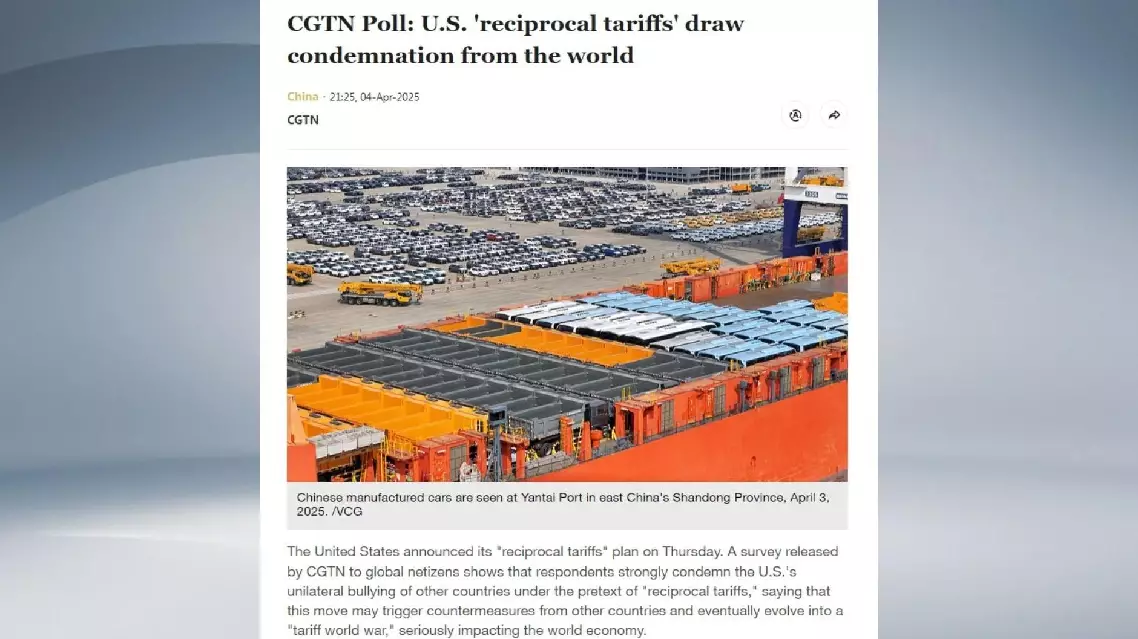
CGTN poll: US 'reciprocal tariffs' draw condemnation from world






